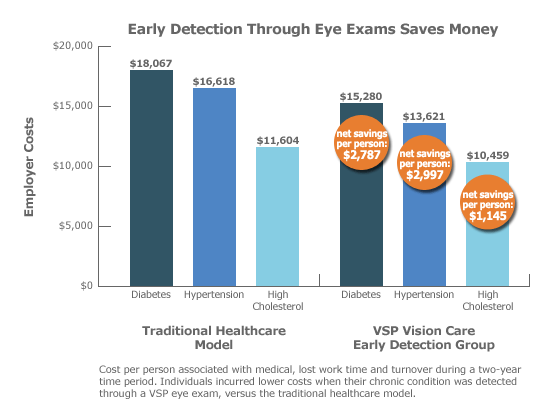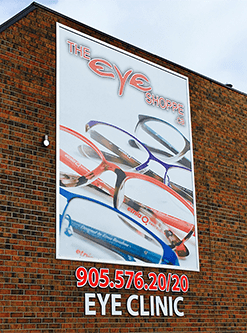Why should you get an eye exam?
Routine eye exams are important — regardless of your age or your physical health.
During a comprehensive eye exam, your eye doctor does much more than just determine your prescription for eyeglasses or contact lenses. He or she will also check your eyes for common eye diseases, assess how your eyes work together as a team and evaluate your eyes as an indicator of your overall health.
Also, eye doctors often are the first health care professionals to detect chronic systemic diseases such as high blood pressure and diabetes.
Who Should Get Their Eyes Examined?
Eye examinations are an important part of health maintenance for everyone. Adults should have their eyes tested to keep their prescriptions current and to check for early signs of eye disease.
Children's eye exams are important to ensure normal vision development.
Eye exams for children play an important role in ensuring normal vision development and academic achievement of all kids.
Vision is closely linked to the learning process. Children with undetected vision problems often will have trouble with their schoolwork. Many times, children will not complain of vision problems simply because they don't know what "normal" vision looks like.
If your child is performing poorly at school, be sure to have his or her eyes examined by an eye doctor who specializes in children's vision to rule out an underlying visual cause.
What Is the Eye Doctor Checking for?
In addition to evaluating your eyes for glasses and contacts, your eye doctor will check your eyes for eye diseases and other problems that could lead to vision loss. Here are some examples of the conditions that your eye doctor will be looking for:
Refractive error. This refers to nearsightedness, farsightedness and astigmatism. Refractive errors are corrected with eyeglasses, contacts or refractive surgery.
Amblyopia. This occurs when the eyes are turned or when one eye has a much different prescription than the other. The brain will "shut off" the image from the turned or blurry eye. Left untreated, amblyopia can stunt the visual development of the affected eye, resulting in permanent vision impairment. Amblyopia is often treated by patching the stronger eye for periods of time.
Why should you get an eye exam?
Strabismus. Strabismus is defined as crossed or turned eyes. The examiner will check your eyes' alignment to be sure that they are working together. Strabismus causes problems with depth perception and can lead to amblyopia.
Eye teaming problems. Even if you eyes appear to be properly aligned, it's possible they do not work together efficiently as a team. Such binocular vision problems can cause headaches, eye strain and other problems that can affect reading and other near vision tasks.
Focusing problems. These problems can range from incompletely developed focusing skills in children to normal age-related declines in focusing ability (presbyopia) among older adults.
Eye diseases. Many eye diseases, such as glaucoma and diabetic retinopathy, have no symptoms in their early stages. Your eye doctor will check the health of your eyes inside and out for signs of early problems. In most cases, early detection and treatment of eye diseases can help reduce your risk for permanent vision loss.
Other diseases. Eye doctors can detect early signs of some conditions and diseases by looking at your eye's blood vessels, retina and so forth. Your eye doctor may be able to tell you if you are developing high blood pressure, high cholesterol or other problems.
For example, diabetes can cause small blood vessel leaks or bleeding in the eye, as well as swelling of the macula, which can lead to vision loss. Your eye doctor will likely detect this during a complete eye exam. It is estimated that one-third of Americans who have diabetes don't know it; your eye doctor may detect the disease before your primary care physician does, especially if you're overdue for a physical.
Why Vision Screenings Are No Substitute for a Complete Eye Exam
Vision screenings are limited eye tests that help identify people who are at risk for vision problems. These are the brief vision tests performed by the school nurse, a pediatrician, other health care providers or volunteers.
The eye test that you take when you get your driver's license renewed is an example of a vision screening.
Depending on who is performing the test and where the test is given, vision screenings may include tests for blur, muscle coordination and/or common eye diseases.
Keep in mind that a vision screening can indicate that you need to get your eyes checked, but it does not serve as a substitute for a comprehensive eye exam.
A comprehensive eye examination is performed by an eye doctor and includes careful testing of all aspects of your vision. Based on the results of your exam, your eye doctor will then recommend a treatment plan for your individual needs.
Remember, only an optometrist or ophthalmologist can provide a comprehensive eye exam — family physicians and pediatricians are not fully trained to do this, and studies have shown that they can miss important vision problems that require treatment.
Why should you get an eye exam?
Treatment Plans After Your Eye Exam
Treatment plans following your eye exam can include a prescription for glasses or contact lenses to correct refractive errors, vision therapy or strabismus surgery for binocular vision problems, medical treatment for eye disease or simply a recommendation that you have your eyes examined again within a specific time frame.
Your eye doctor also may recommend that you take eye vitamins or vision supplements to maintain good eye health or to help alleviate specific problems like dry eyes.
No matter who you are, regular eye exams are important for seeing more clearly, learning more easily and preserving your vision for life.
An Eye Exam Can Save You Money — and Your Life
Money Saved When Eye Doctors Detect Systemic Diseases Early, Says Study
A recent study found that eye doctors frequently are the first health care providers to detect signs of chronic systemic conditions. For high cholesterol, this occurred 65 percent of the time. For diabetes, it was 20 percent of the time, and for hypertension, it was 30 percent of the time.

Eye doctors have an unobstructed view of the eyes' blood vessels, which is where they can see signs of these chronic conditions.
VSP Vision Care, a vision benefits company, commissioned the study, which was applied to its 56 million members to determine the cost savings due to early treatment because of their eye exam.
- 65 percent of the 2.2 million members with high cholesterol (1.5 million) received early treatment, for a two-year savings of $1.7 billion.
- 20 percent of 1.5 million members with diabetes (296,800) received early treatment, for a two-year savings of $827 million.
- 30 percent of 2.2 million members with hypertension (667,800) received early treatment, for a two-year savings of $2 billion.
Human Capital Management Services Group conducted the study for VSP Vision Care, who reported the results in April 2011.

